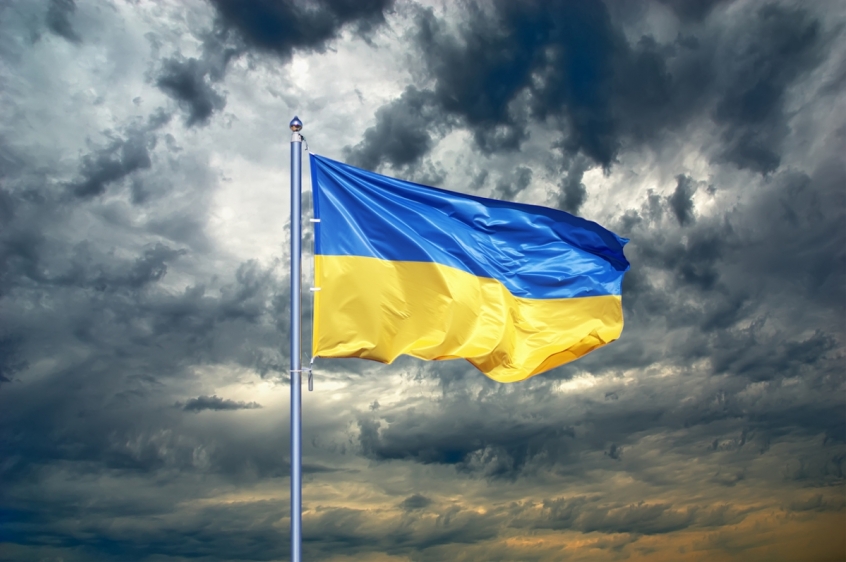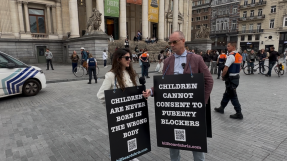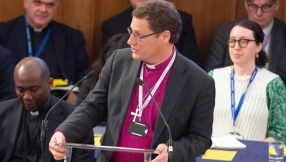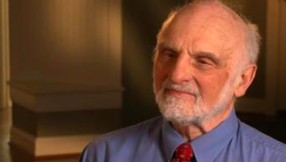
'Even if I knew that tomorrow the world would go to pieces, I would still plant my apple tree today.'
These are words attributed to Martin Luther, the father of the German Reformation. Whether he actually said them or whether someone put them on his lips, the quip packs a punch.
The world ending tomorrow. It's a scary thought that seemed a lot more far-fetched a couple of weeks ago. But that was before troops moved into Eastern Europe, pulling the existential rug from under 45 million Ukrainians. That was before the threat levels of a nuclear war went up a notch.
Jews and Christians commonly understand history in terms of starting and finishing lines. Life is no cycle of endless repetition. According to the Bible, history is 'his story' – God's story. He started it off when he made the world. He'll add the final chapter, the day he renews the creation we have left in ruins. Between those two poles, the Bible shows God to be mysteriously involved in human affairs. Despite the apparent triumph of evil, he remains in charge. One day this will become obvious to everyone. Swords will be turned into ploughshares. War and death will cease. Tears will be wiped from every eye.
In the meantime, how can people, and people of faith in particular, make sense of current events? What time is it on the world clock? Does the Bible give us any clues?
It can be tempting to handpick passages, say, from the Book of Revelation, and read them through the lens of present-day disasters like the Ukrainian conflict. Time and again the Bible has been used in this way, even to the point of people calculating the exact day the world would end. Every time, these predictions proved wrong.
We fear the unknown. Ask anyone who has been told they may have a life-threatening disease; waiting for the test results can be more distressing than learning the actual diagnosis. When a major political crisis erupts, people are desperate to know what tomorrow will hold. There's nothing worse than being unable to look beyond today. We are hard-wired to try to comprehend the incomprehensible. We want to see the big picture and grasp the point of it all.
Some modern-day prophets tap into that human thirst for knowledge and meaning. They wrap their personal take on biblical end-time visions in paperback and sell millions of copies. They provide the comfort of showing a pathway through chaos and destruction, along with the assurance that the happy ending is just round the corner.
The Bible affirms there will be a happy ending. Whether it is round the corner, is another matter. We are given the big picture. To insist that we understand every detail, and even have the maths to calculate God's timeline, is misleading and profoundly unhelpful.
The Bible neither contains an itemised end-time schedule culminating in nuclear Armageddon, nor does it offer a straightforward answer to the question of if and when war and violence are justified. People in ancient Israel were surrounded by neighbouring superpowers ready to pounce and extend their territory. And there were regional skirmishes. The Bible even speaks of 'spring ... the time of the year when kings usually go to war' (2 Samuel 11.1). Some passages even endorse the use of military force. On the other hand, Jesus speaks out against violence and retaliation. And the early Church, which was much closer to Jesus than we are, was known for its pacifist stance.
When the devil offered him world dominion, Jesus point blank refused. No wonder people keep Jesus out of realpolitik. But suppose we took the Gospel at face value, as it unmasks the lure of unrestrained power as satanic and destructive? What if we discovered that the words and actions of Christ offered an alternative to army tanks and nuclear warheads? It may be hard to imagine the antagonists on the blood-soaked Ukrainian stage laying down their arms and reading the Sermon on the Mount together. But what if they don't? What is the alternative? Which of the two scenarios is more absurd?
Whatever we may think, theoretically, of pacifism or justified military action, the Ukrainian crisis and its potential to turn into a nuclear crisis is real. The temptation may be to either panic or stick our head in the sand. Martin Luther (or whoever it was) shows a third way. As he digs a hole, mixes the soil with compost and gives the sapling a good soak, he isn't thinking about the future. He even admits that there may be no future. But for now he is busy focusing on the task at hand. He has no idea whether the tree will reach maturity or if he himself will live to see it. All he has is hope. And it is hope which guides his actions: that tomorrow is in God's hands, and that we can be at peace today.
Michael Pfundner is a writer for Bible Society. Churches in Ukraine are asking for Bibles – click here for more information.













